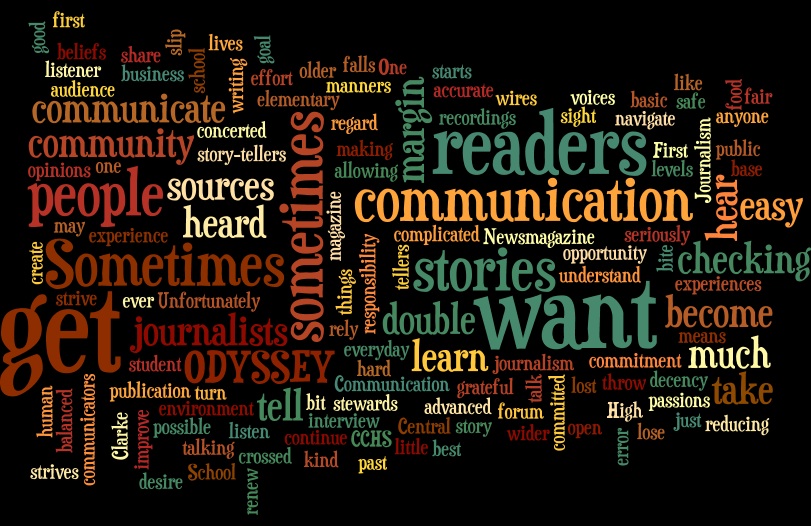This graphic displays the keywords and topics within the article below.
By LOUISE PLATTER – Editor-in-chief
As journalists, we aspire to communicate with the community in order communicate their stories no matter how difficult or easy.
One of the first things we learn in elementary school is how to talk to people. First, it’s basic manners. Don’t throw food, don’t bite anyone. Then, we get a little bit more advanced. Be kind, be a good listener. Unfortunately, as we get older, it starts to get complicated.
Communication is hard. Sometimes we hear what we want to hear, sometimes we don’t listen like we should. Sometimes we just don’t understand. Once we get past those base levels of human decency, there’s so much to navigate that sometimes we get lost.
Journalism is all about communication. As a publication, the ODYSSEY strives to communicate with people in the Clarke Central High School community, and in turn to communicate their stories, beliefs and passions to you: our readers.
Sometimes our wires get crossed. In our desire to tell stories we may lose sight of the people that we are talking to. We want what’s best for our readers, our sources want to be heard, our readers want to learn, but sometimes communication falls through. There’s a margin of error.
The ODYSSEY Newsmagazine is committed to reducing that margin as much as possible. That means double checking our writing, double checking our interview recordings and making a concerted effort everyday to become fair, accurate and balanced story tellers.
That is what journalism is about, and when we slip up, we take that experience as an opportunity to renew our commitment.
We want our magazine to be an open public forum for our community to share their opinions, experiences and lives with a wider audience. We strive to create a safe environment for our sources, and as student journalists, all we can do is improve in regard to that goal.
No one ever said that communication was easy, but as journalists we aren’t in the business of easy. If we don’t tell these stories, they won’t be heard, and we take that responsibility very seriously.
We are grateful to CCHS for allowing us to be stewards of their voices, and we will continue to become the communicators and story-tellers that our readers can rely on.
